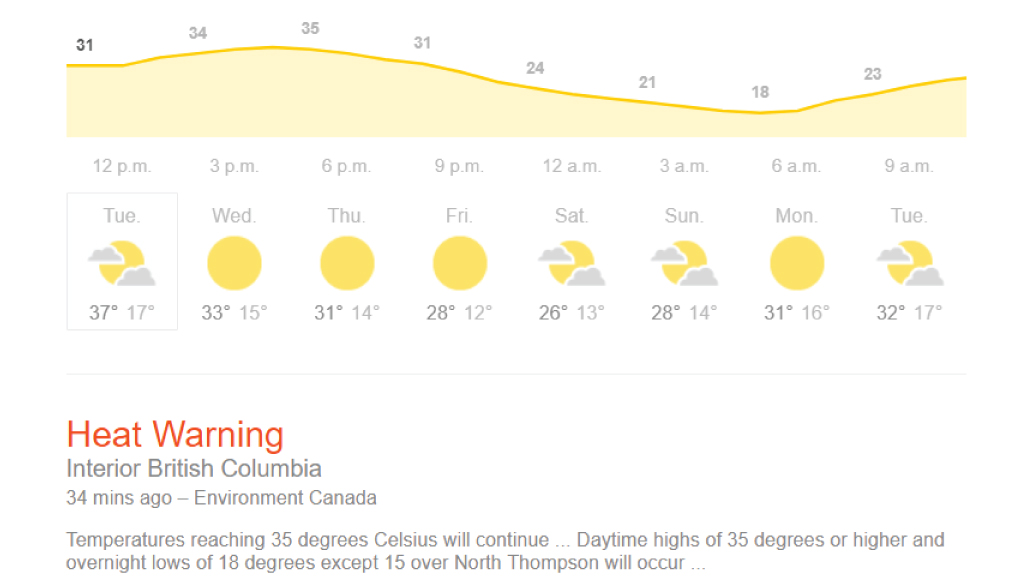July 27, 2018 (Burnaby, BC) – As the heatwave in B.C. continues—with temperatures hitting the high 30s in some areas—BC Care Providers Association is urging the public to check on their elderly friends, relatives and neighbors to make sure they’re feeling well.
“For seniors living at home or in care, regular visits by family members, neighbours and friends go a long way,” says BCCPA CEO Daniel Fontaine. “Visitors can help identify signs of illness that could be missed over the phone. It’s important to see how they’re doing and help them to get to places they can cool off,” he adds.
Extreme heat and poor air quality can have serious consequences for the elderly and those with respiratory issues. They’re at a greater risk for heat illness as their bodies can’t adapt to sudden temperature changes quickly enough. Seniors can be less sensitive to these changes and might not even realize they’re overheating.
If you find a senior exhibiting signs of heat illness that can’t be resolved by moving to a cooler place, call 911 immediately.
Preventing heatstroke in seniors
Heatstroke is a serious medical condition that requires emergency attention. If left untreated, it can cause damage to the brain, heart and kidneys, and can be fatal. Taking the following precautions can reduce the risk of heat illness among seniors.
- Take note of the seniors’ health conditions and medications. Check if they’re taking any prescription drugs that could impair their ability to regulate body temperature.
- Watch out for signs of overheating such as extreme thirst, dizziness, headache, nausea, cramps, fatigue, and cold, clammy skin. Overheating is not very dangerous on its own but can quickly lead to heatstroke. Symptoms of heatstroke include a body temperature of 104°F or higher, inflamed skin without sweating, rapid pulse, headache, nausea, dizziness and unconsciousness.
- Minimize sun exposure. If it’s hot outside stay indoors in a cool, air-conditioned environment. Keep your home cool by blocking out the sun with blinds/solar curtains, and keeping windows open at night.
- Dress appropriately. Wear light-colored clothing made of natural, breathable fabrics like cotton. Hats and scarves should be used to protect against the sun.
- Stay hydrated by consuming enough water, juice, fruits and vegetables. Avoid alcoholic beverages, coffee and cola.
- Exercise indoors on warm days. Seniors should stay active but avoid overexerting themselves.
-30-
MEDIA CONTACT: Rumana D’Souza, BCCPA Digital Media & Communications Coordinator, (778) 681-4859, rumana@bccare.ca
About BC Care Providers Association
Established in 1977, the BC Care Providers Association (BCCPA) is the leading industry association for B.C.’s continuing care sector. Our growing membership base includes over 300 residential care, assisted living, home health care and commercial members from across British Columbia.





